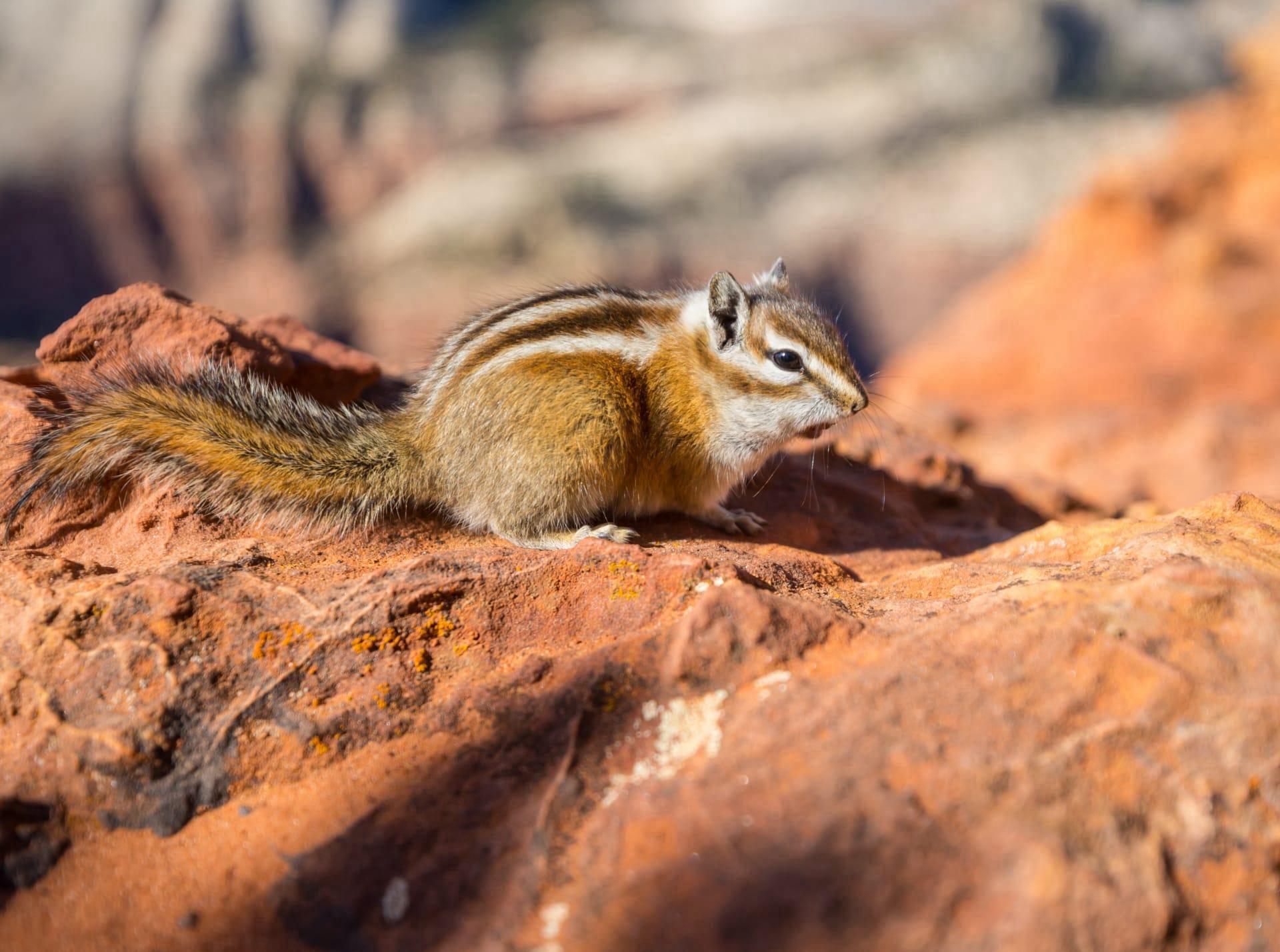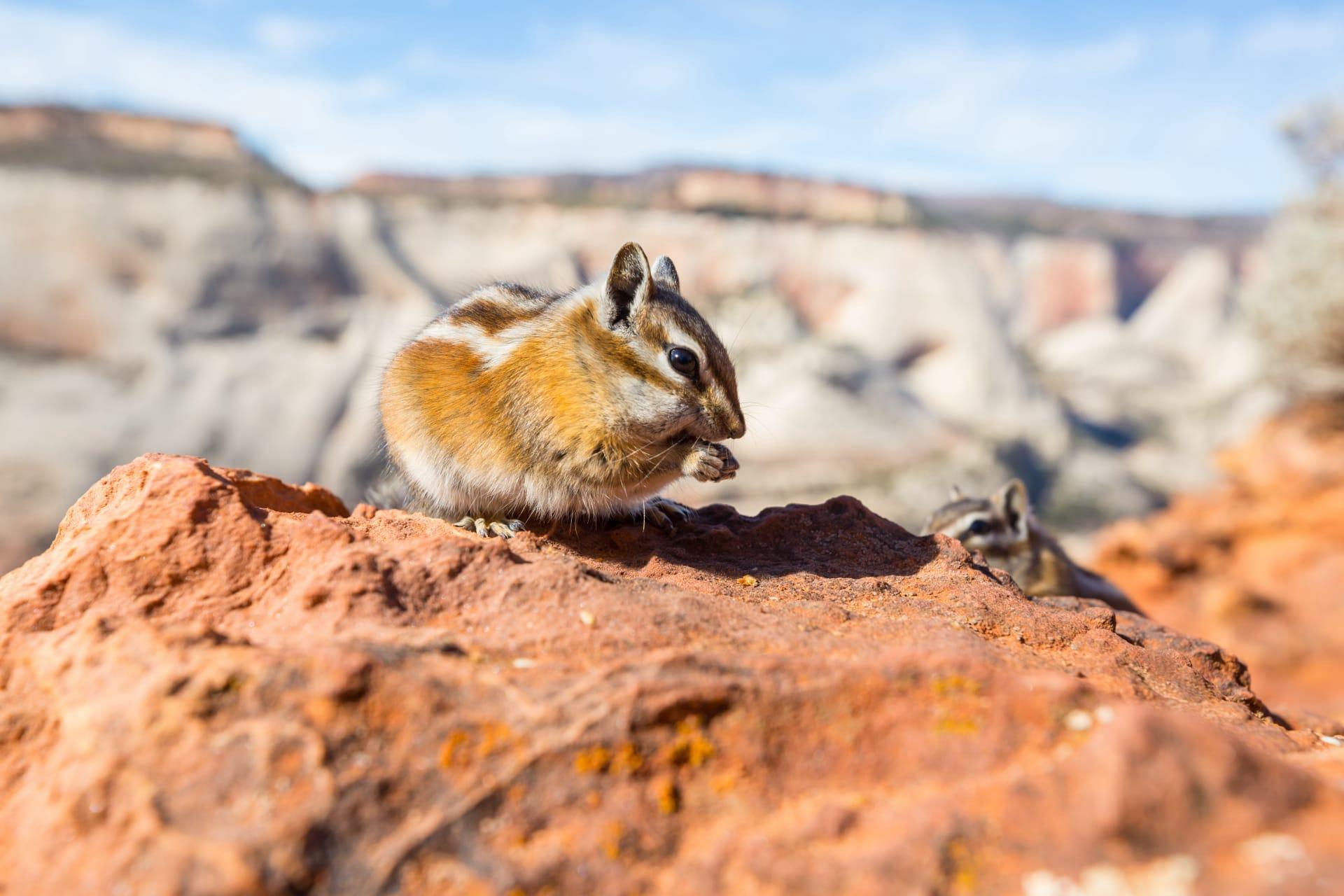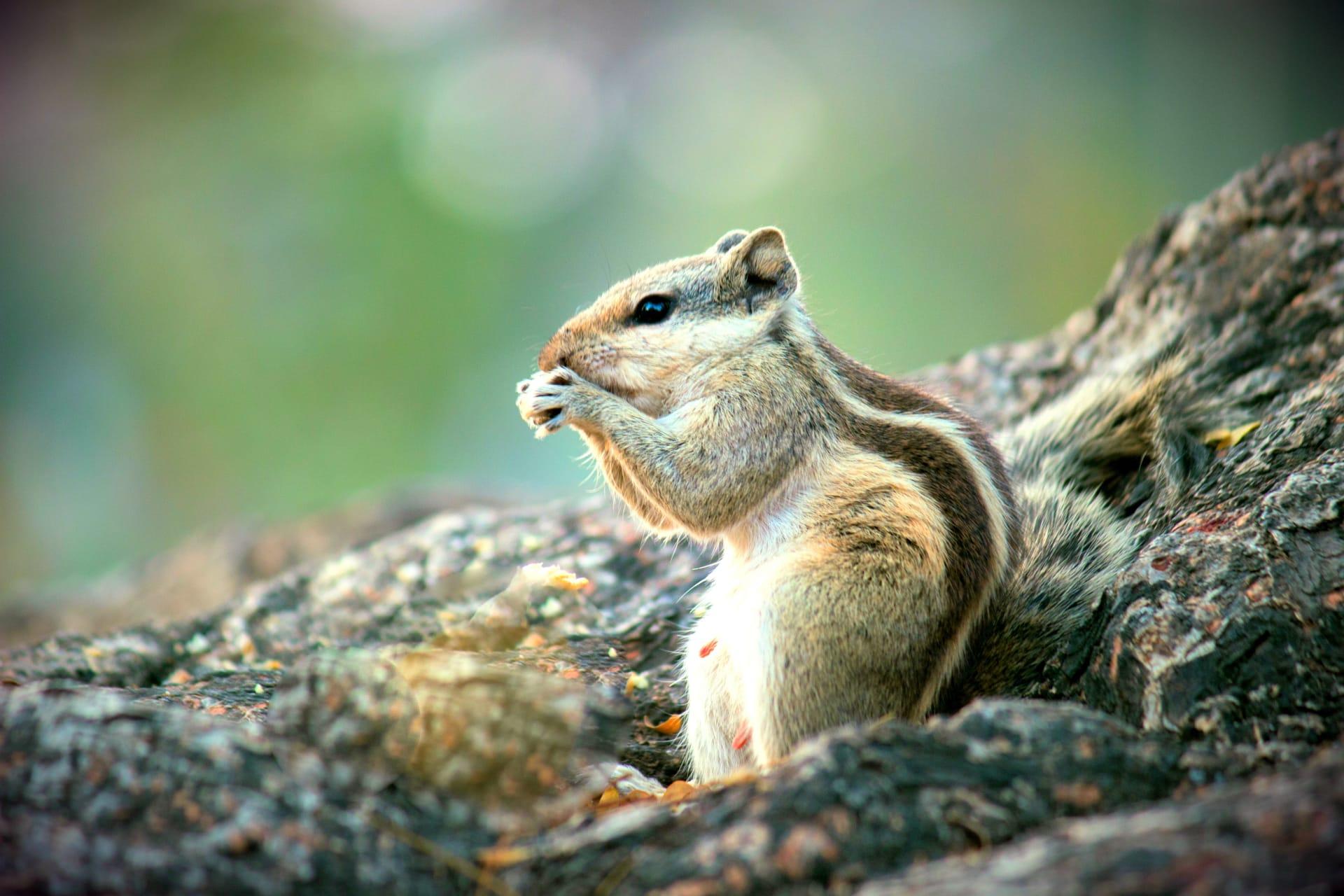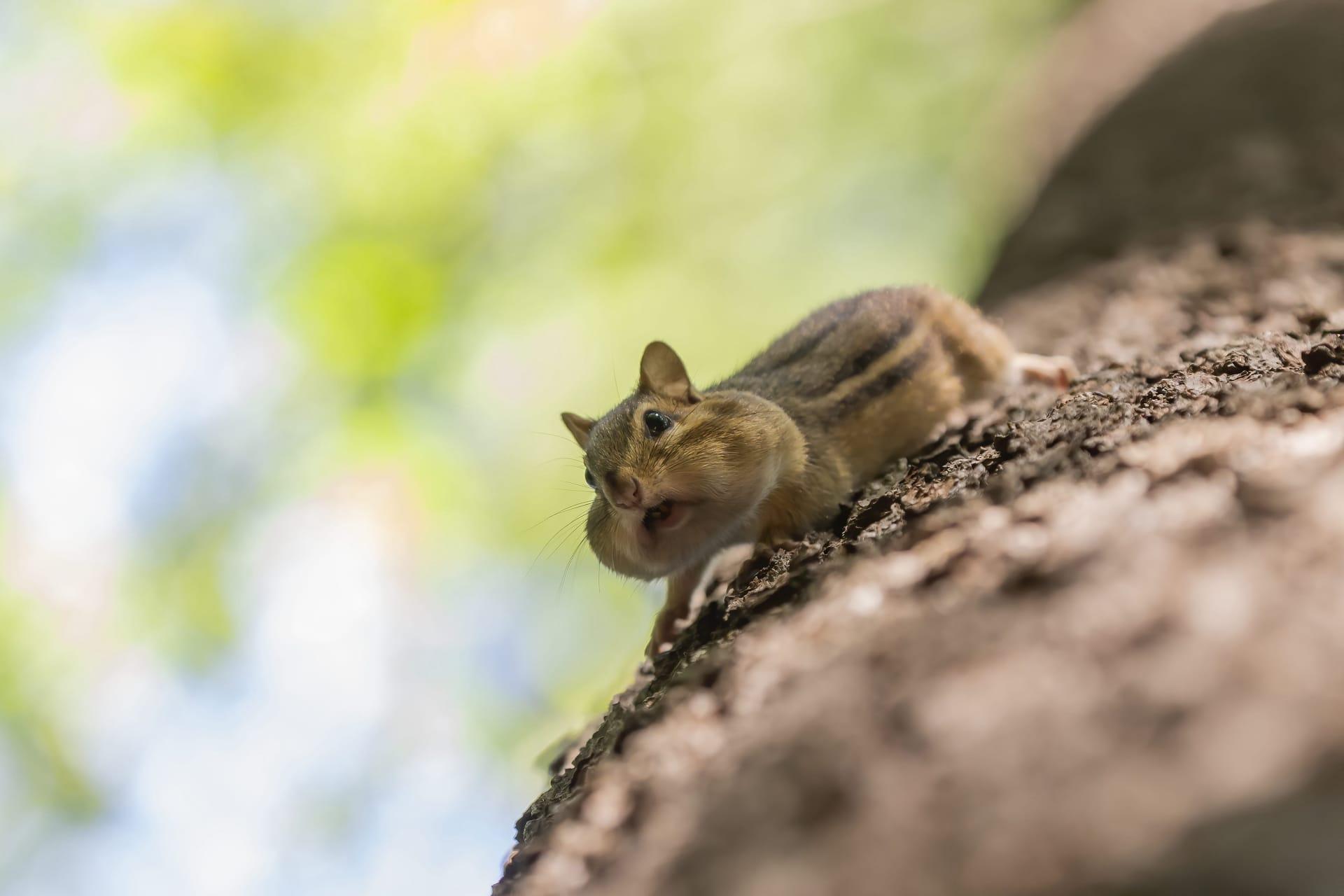1
Chipmunks, those adorable, striped rodents, are known for their remarkable cheek pouches. These pouches are not just cute; they're incredibly stretchy and functional. A chipmunk can expand its cheek pouches to almost the size of its entire body! This adaptation allows them to gather and store large quantities of food, like seeds and nuts, which they transport to their burrows for later consumption. It's a survival strategy during winter and scarce periods, as these cheeky little creatures don't truly hibernate but enter a state of torpor and rely on these stockpiles.
Chipmunks communicate through a variety of vocalizations and body movements. They have a range of sounds, from deep chucking noises to high-pitched chirps, which they use to warn others of predators or to communicate with potential mates. Interestingly, the pitch and frequency of these calls can vary depending on the type of threat or the chipmunk's individual personality. This complex communication system is crucial for their survival in the wild, where predators are abundant.

2
Did you know chipmunks are master burrowers? Their underground homes, known as burrows, can be quite elaborate with multiple entrances and exits for quick escapes. These burrows are meticulously designed with specific areas for sleeping, storing food, and even discarding waste. Some chipmunk burrows have been found to extend up to 30 feet in length, featuring several chambers and tunnels that provide safety and storage.
Another fascinating fact about chipmunks is their keen sense of smell. This heightened olfactory ability plays a pivotal role in their survival. They use it to locate buried food, even under a blanket of snow. This sense is so acute that they can differentiate between various types of nuts and seeds without seeing them, ensuring they pick the most nutritious options. Their smell also aids in detecting predators and navigating their environment, making it an essential tool for their daily life.

3
Chipmunks are not just gatherers; they're also selective hoarders. When foraging, they often practice a behavior called 'scatter hoarding,' where they hide food in various locations rather than in a single cache. This strategy reduces the risk of losing all their food to other animals or competitors. It's quite a smart tactic, showing their ability to plan and secure resources for the future.
Surprisingly, chipmunks play a significant role in forest ecology. They are known as 'seed dispersers.' As they collect and scatter seeds, many of these seeds escape being eaten and end up growing into new plants. This inadvertent act contributes to the spread of various plant species, aiding in forest regeneration and maintaining a balanced ecosystem. Their small but mighty actions have a lasting impact on their environment.

4
Chipmunks possess an impressive memory, especially when it comes to locating their food caches. After burying seeds and nuts in numerous locations, they can remember these spots with remarkable accuracy, even after several months. This skill is essential for their survival, especially during winter when food sources are scarce. Their spatial memory and cognitive abilities are a testament to their adaptability in the wild.
Another intriguing aspect of chipmunks is their solitary nature. Unlike many other rodents, they are not social creatures and prefer to live alone. They are highly territorial and will fiercely defend their space, especially during the breeding season. This solitary behavior is a stark contrast to the more communal lifestyle of other small mammals, highlighting the diversity of survival strategies in the animal kingdom.

5
Chipmunks have a unique way of dealing with food that's too big for their mouths. They will sit and meticulously break it into smaller, manageable pieces. This behavior not only makes it easier to eat but also to transport and store in their burrows. It's a clever adaptation that allows them to maximize their food gathering and ensure they have enough supplies for leaner times.
Chipmunks have a rapid metabolism, which means they need to eat frequently to maintain their energy levels. During active periods, they can consume up to one-third of their body weight in food each day. This high metabolic rate is one reason why they are constantly foraging and storing food. It's a fine balance between survival and energy conservation, illustrating the delicate interplay of biology and behavior in these fascinating creatures.